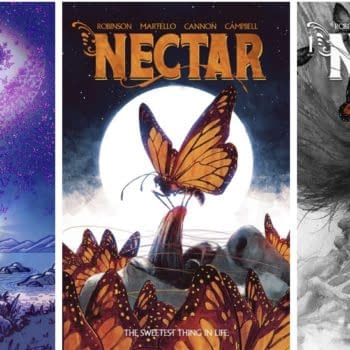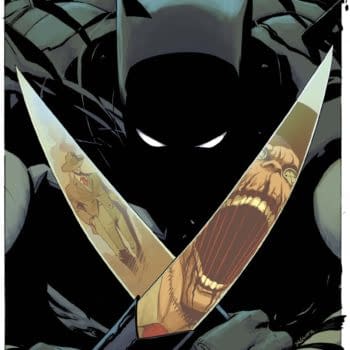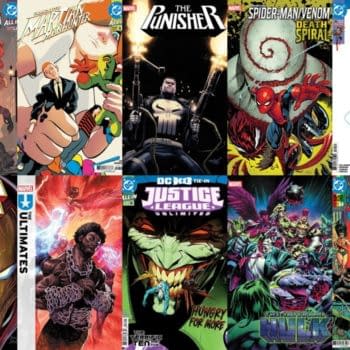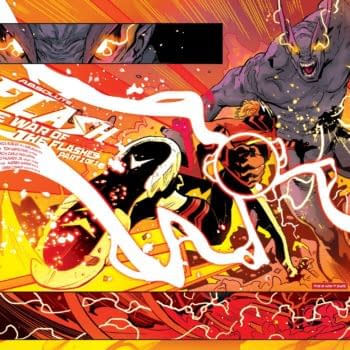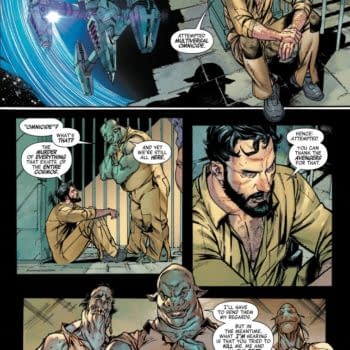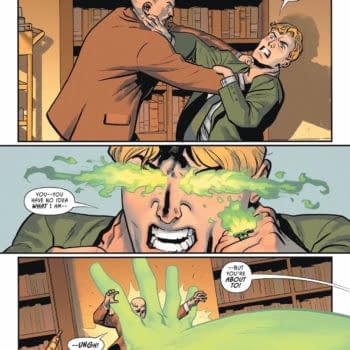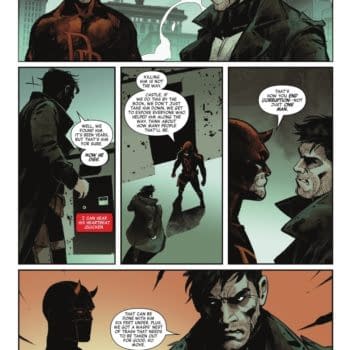Posted in: Comics, Recent Updates | Tagged: Comics, shops, stores
Rory Root, Comic Relief And How The Comics Industry Works
Recently, the East Bay Express ran a profile of local store, Comic Relief in Berkely, California, and its imminent doom. The paper interviewed current store manager Chris Juricich .
But lately, the Berkeley store has been hemorrhaging customers. Juricich blames cash-flow problems, which caused Comic Relief to temporarily lose its distributor, Diamond. As of right now, the store hasn't gotten any new arrivals in nearly a month. It faces imminent closure
Juricich also blames the emergence of the trade paperback and poor business decisions made by Root in the past.. But there are two parts of the article that may bear further attention. Firstly describing Root; "He had a strong network of friends to help when money got tight, which also gave him the leverage to spread himself thin" and from Juricich; "Unfortunately, as the manager, there's only so much I can do other than using straightforward common business sense to keep the place going."
We'll come back to that in a minute. Basically the article describes how previous owner Rory Root ran the shop down until his death and, despite the best efforts of his family and the management they recruited, how the shop is facing collapse. But the final part really sticks out – "at this point, one of two things might happen. One is that a surviving relative of Rory Root will purchase the store, address its debt, and revive its name with the current staff in place."
Because the family of Rory Root already own Comic Relief. It was Rory's wish that the store go to manager Todd Martinez after his death. He told fellow workers and customers that it was in his will, but if so it has not been found, and his family now own the company. Martinez was demoted in the store, and Juricich employed by Root's familyas a senior. Martinez left and Juricich took over the role..
But as to the reasons given for Comic Relief's decline, no one in comics believes it. The industry knows exactly why the shop is facing disaster. Because this is a story about how the comic book industry looks after its own. And how Comic Relief no longer counted.
Rory Root was always in and out of financial trouble mostly because of the long-term stock he perpetually held in the store. But as a result, Comic Relief was a mecca for very important people who needed a very specific comic. Rory, more than anyone, was likely to have it. He carried and sold in bulk the kind of small press and independent comics that developed the careers of the likes of Evan Dorkin, Brian Wood, Matt Fraction, Brian Bendis, Bryan Talbot, Eddie Campbell, Jonathan Hickman, Ethan Van Sciver, Kyle Baker, Kieron Gillen, and many more – and more importantly recommended such talent to the bigger companies. And they listened.
As a flagship store for the comics industry, Comic Relief was a popular place where a company, producer, creative of organisation, could host an event and guarantee very positive publicity in the mainstream press.
In return Rory would give knowledge, statistics, information about budding talent and all round advice. And Todd Martinez was of a similar mind – possible less instinctive than Rory, but a disciple of Rory and a source of much of Rory's talent tips and statistics.
As a result, especially considering that uncertain financial footing, the comics industry gave Comic Relief a lot of slack over the likes of billing and payment issues.
There are similarities with Golden Apple on Melrose in LA – the shop where movie stars, producers and animators shopped, porn stars hung out, yo-yo tournaments were held and the movie studios loved. Owners Bill, Sharon and the shop manager rarely needed financial help, but got it when they did. When Bill died, Sharon and the kids inherited the store, and son Ryan and daughter Kendra took over the management. First they consolidated by selling the smaller store in the suburbs to pay back bills and keeping the much loved Melrose shop going.
In return, the industry collectively gave them a crash course in being Golden Apple: what to order, how to order, how to interpret numbers, when best to hold events, consignments — everything they continue to need, including that infrequently needed financial slack.
Everything Todd Martinez would have gotten from Diamond and the big publishers if he had continued to manage the store after Rory's death.
These shops are not alone. Comix Experience in San Francisco is another example, it got unprecedented industry help after a flood or two. That the owner also helped publishers set policy with his knowledge, advice and numbers was a good part of the reason why.
Having very specific stores in very specific areas in Manhattan has been essential to the current comics industry, the publishing of which is still concentrated within a few blocks, and the industry has done its best to maintain these, despite rising rents, and 9/11 on one hand and late orders and financial problems on the other.
These stores have been very much responsible for experiemnattion from publishers, an audience willing to try different things, and a way to keep the comic industry as a whole as fresh as it can be, even if massive sales aren't there.
Comic Relief was one of them. But since Comic Relief pulled out of the San Diego Comic Con and other shows, Todd Martinez left and their ordering of more experimental work slashed, the two-way dialogue between that store and the rest of the industry has been cut. And the industry cut it loose. So when those unpaid Diamond bills mounted up over cashflow problems there was no one there to bridge the gap. That's what "straightforward common business sense" does for you.
And this is why Comic Relief is facing closure. Because Comic Relief is no longer Comic Relief. And that, for many, is a tragedy.
However since the article, this has been weighing on the consciences of some industry figures. And a small conglomerate may be about to find a way to save Comic Relief. The old Comic Relief, that is.
As I said, the industry looks after its own. Or in this case, brings them back to the flock.










